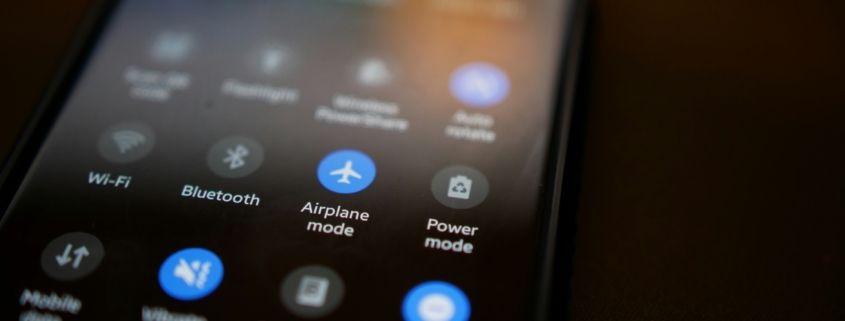Your Brain on Airplane Mode
Constant connection looks productive, but your brain reads it as constant context-switching. Every ping forces a mini reboot of attention systems; over time, that adds up to fatigue, worse recall, and fuzzier decision-making. The antidote isn’t a dramatic digital detox — it’s short, deliberate pockets of quiet that let your nervous system downshift and your memory systems do their job.
Why brief quiet works
When stimulation pauses, the brain can consolidate new information. A review from Northwestern/Wamsley’s group shows that wakeful rest after learning reliably strengthens memory traces, improving later recall compared to continuous input [1]. In animal models, even periods of silence promote growth in the hippocampus — a region central to learning and memory — suggesting that calm isn’t empty; it’s maintenance [2].
Interruptions drain focus
Gloria Mark’s classic interruption study found that after a digital interruption, workers needed ~23 minutes to fully resume focus — and they compensated with more speed and stress, not better outcomes [3]. Multiply that by a day of alerts, and you’re burning cognitive energy on recovery rather than progress. Meta-analyses on micro-breaks show the flip side: short breaks (from a few seconds to 10 minutes) reduce fatigue and can boost performance, especially on attention-heavy tasks [4].
Mind wandering helps creativity
Deliberate “airplane mode” creates room for the brain’s default-mode network — the circuitry linked with idea linking and problem incubation. Controlled studies show that engaging in a simple, non-demanding activity (i.e., allowing mind wandering) after a hard problem leads to better creative solutions than powering straight through [5].
Make it practical
Try one airplane-mode hour this week: silence notifications, close nonessential tabs, and let work come in single threads. End with two minutes of wakeful rest — no apps, no music — before you re-engage. It’s a low-effort way to protect attention and improve recall.
Built-in support for the reset
With ALLtech through Regence, you can handle care without adding noise: $0 telehealth via Doctor On Demand for routine needs, preventive care at 100%, and behavioral-health access through SupportLinc for stress and focus support. Less logistics, more recovery — exactly what your brain needs before the year-end sprint.
Sources:
[1] Wamsley, E.J. (2019). “Memory Consolidation during Waking Rest.” Trends in Cognitive Sciences. https://pmc.ncbi.nlm.nih.gov/articles/PMC7024394/
[2] Kirste, I., Nicola, Z., Kronenberg, G., et al. (2013). “Is silence golden? Effects of auditory stimuli and their absence on adult hippocampal neurogenesis.” Brain Structure and Function. https://pmc.ncbi.nlm.nih.gov/articles/PMC4087081/
[3] Mark, G., Gudith, D., & Klocke, U. (2008). “The Cost of Interrupted Work: More Speed and Stress.” CHI ’08 Proceedings. https://www.ics.uci.edu/~gmark/chi08-mark.pdf
[4] Wendsche, J., & Lohmann-Haislah, A. (2022). “Give me a break! A systematic review and meta-analysis on the efficacy of micro-breaks.” PLOS ONE. https://pmc.ncbi.nlm.nih.gov/articles/PMC9432722/
[5] Baird, B., Smallwood, J., Mrazek, M.D., et al. (2012). “Inspired by distraction: Mind wandering facilitates creative incubation.” Psychological Science. (UCSB PDF) https://www.cmhp.ucsb.edu/sites/default/files/2018-12/Baird%20et%20al.%20%282012%29%20Inspired%20by%20distraction.pdf



